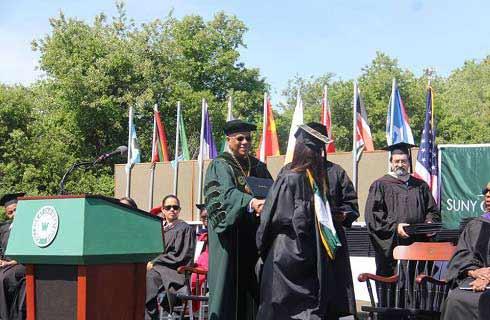Master of Laws (LLM) - Immigration Law

学历文凭
Masters Degree

专业院系
Law.

开学时间

课程时长

课程学费

国际学生入学条件
Applicants who received their first law degree (JD) in the U.S. must submit an official LSAT score. International students who received their first law degree outside the U.S. are not required to take the LSAT exam. The minimum TOEFL score requirement is 250 for the computer based exam, 600 for the paper test, or 100 for the internet based exam. Two letters of recommendation are required. At least one letter should be from an academic source. You must submit transcripts for all collegiate, graduate and professional study. Applicants are required to submit an updated resume with their application.
IDP—雅思考试联合主办方

雅思考试总分
6.0
- 雅思总分:6
- 托福网考总分:100
- 托福笔试总分:600
- 其他语言考试:NA
CRICOS代码:
申请截止日期: 请与IDP联系 以获取详细信息。
课程简介
The practice of immigration law encompasses a broad range of legal environments, from business immigration law in which lawyers represent corporations seeking to employ foreign born workers to deportation defense which includes representing individuals detained by the federal government seeking release from detention and relief from removal. Immigration lawyers practice in large and small firms, non-profit agencies and government. Immigration law can generally be divided into two large spheres administrative or affirmative practice and deportation defense. Administrative practice involves petitioning the U.S. government to allow a person to migrate to the U.S. on an immigrant or non-immigrant visa or as a refugee. This practice can be further broken down into business immigration, family based immigration and humanitarian based immigration. Deportation defense involves more classic litigation including interviewing and counseling clients, motions practice, legal brief writing, preparing lay and expert witnesses, oral arguments, and appellate practice. Given the high rates of immigration detention and the defensive posture, deportation defense is most like criminal defense in its practice. Business immigration is practiced in large and small firms. The clients are corporations who seek foreign-born workers and the intending immigrant is a third party beneficiary of the process. Other small firms take a wider range of cases in the administrative areas and may also do some deportation defense. There are also a number of immigration lawyers who are solo practitioners and those practitioners tend to focus on administrative practice but also do deportation defense. Lawyers at nonprofit agencies tend to focus on humanitarian based immigration such as political asylum claims, visas for victims of domestic violence, and visas for trafficking victims. Nonprofit lawyers also increasingly do deportation defense as the number of detentions and deportations grows. Some nonprofits and small firms specialize in immigrants' rights, which includes complex federal litigation, writs of habeas corpus and administrative practice. In the government sector, lawyers can work as policymakers, as prosecutors in deportation cases and as legislative aides to members of Congress specializing in immigration legislation.
相关申请
 预科
预科 奖学金
奖学金 实习机会
实习机会 在校学习
在校学习 跨境学习
跨境学习 校园授课-线上开始
校园授课-线上开始 在线/远程学习
在线/远程学习
开学时间&学费
学费信息仅供参考,请与IDP联系以获取详细信息
| 开学时间 | 时长 | 学费 | 地点 |
|---|
本校相关课程
其他相关课程

安大略大学高级调查和执法研究生证书
 圣力嘉学院
圣力嘉学院学历文凭
Graduate Certificate
开学日期
课程费用总额


法律文员文凭
 范莎学院
范莎学院学历文凭
Bachelor Degree
开学日期
课程费用总额


法律文员文凭(强化)
 亚岗昆学院
亚岗昆学院学历文凭
Bachelor Degree
开学日期
课程费用总额


高级执法和调查研究生证书
 尼亚加拉学院
尼亚加拉学院学历文凭
Graduate Certificate
开学日期
课程费用总额


环境保护与环境执法研究生证书
 弗莱明学院
弗莱明学院学历文凭
Graduate Certificate
开学日期
课程费用总额


司法研究文凭-执法
 博瓦立学院
博瓦立学院学历文凭
Bachelor Degree
开学日期
课程费用总额










 美国
美国






